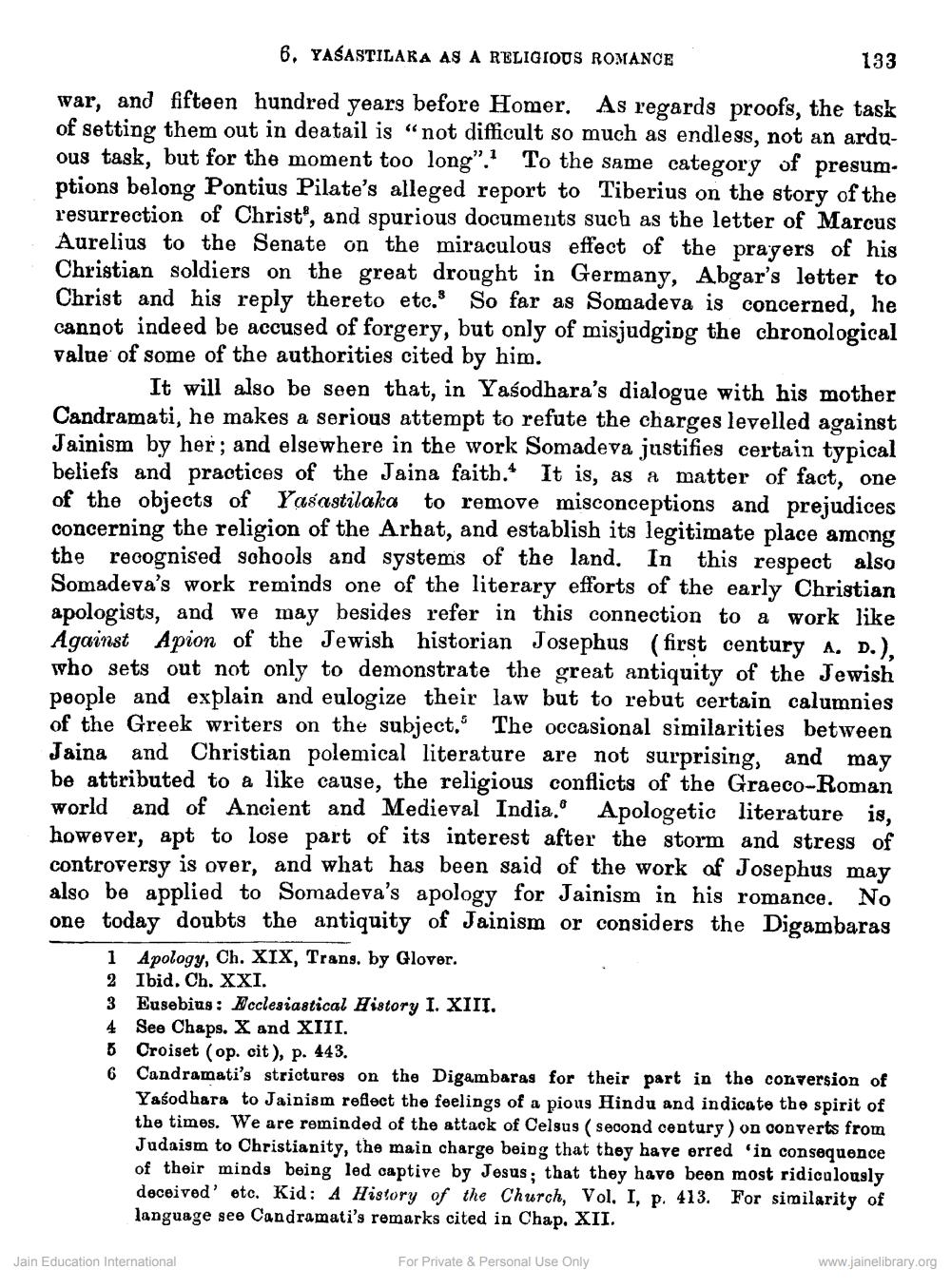________________
6. YAŠASTILARA AS A RELIGIOUS ROMANCE
133
war, and fifteen hundred years before Homer. As regards proofs, the task of setting them out in deatail is “not difficult so much as endless, not an arduous task, but for the moment too long”.! To the same category of presumptions belong Pontius Pilate's alleged report to Tiberius on the story of the resurrection of Christ, and spurious documents such as the letter of Marcus Aurelius to the Senate on the miraculous effect of the prayers of his Christian soldiers on the great dronght in Germany, Abgar's letter to Christ and his reply thereto etc. So far as Somadeva is concerned, he cannot indeed be accused of forgery, but only of misjudging the chronological value of some of the authorities cited by him.
It will also be seen that, in Yasodhara’s dialogue with his mother Candramati, he makes a serious attempt to refute the charges levelled against Jainism by her; and elsewhere in the work Somadeva justifies certain typical beliefs and practices of the Jaina faith. It is, as a matter of fact, one of the objects of Yasastilaka to remove misconceptions and prejudices concerning the religion of the Arhat, and establish its legitimate place among the recognised schools and systems of the land. In this respect also Somadeva's work reminds one of the literary efforts of the early apologists, and we may besides refer in this connection to a work like Against Apion of the Jewish historian Josephus (first century A. D.), who sets out not only to demonstrate the great antiquity of the Jewish people and explain and eulogize their law but to rebut certain calumnies of the Greek writers on the subject. The occasional similarities between Jaina and Christian polemical literature are not surprising, and may be attributed to a like cause, the religious conflicts of the Graeco-Roman world and of Ancient and Medieval India. Apologetic literature is, however, apt to lose part of its interest after the storm and stress of controversy is over, and what has been said of the work of Josephus may also be applied to Somadeva's apology for Jainism in his romance. No one today doubts the antiquity of Jainism or considers the Digambaras
1 Apology, Ch. XIX, Trang. by Glover. 2 Ibid. Ch. XXI. 3 Eusebius: Ecclesiastical History I. XIII. 4 See Chaps. X and XIII. 8 Croiset (op. cit), p. 443. 6 Candramati's strictures on the Digambaras for their part in the conversion of
Yaśodhara to Jainism reflect the feelings of a pious Hindu and indicate the spirit of the times. We are reminded of the attack of Celsus ( second century ) on converts from Judaism to Christianity, the main charge being that they have erred 'in consequence of their minds being led captive by Jesus, that they have been most ridiculously deceived' etc. Kid: A History of the Church, Vol. I, p. 413. For similarity of language see Candramati's remarks cited in Chap. XII.
Jain Education International
For Private & Personal Use Only
www.jainelibrary.org




